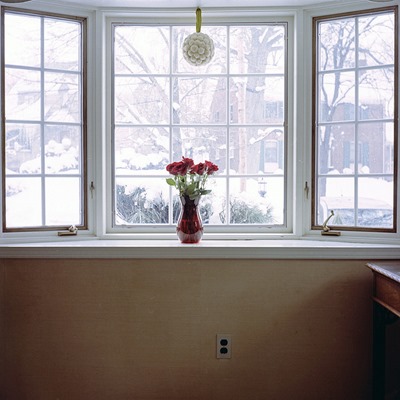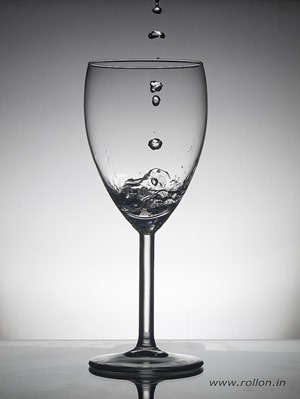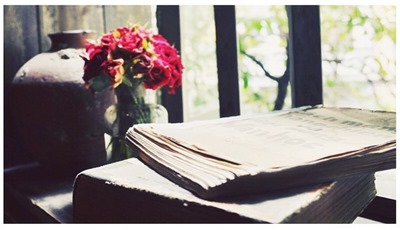Close Your Window: How to Nurture your Mind by Safeguarding your Senses
Have you ever experienced an evening after work when you sat in front of your TV, or your laptop, or next to the radio; your eyes glazed over; your ears unaware; what happening on the screen didn’t arouse even a peanut of interest in you, yet you immersed yourself in the noises?
I used to allow this to happen, but do my best to avoid now. This is a mindless state in which we thought we are entertained, but in fact are hypnotized by all these distractions, so much that we don’t have enough mental strength to cut through it and shut them down.
We live in an age of communication and gadget. This is a blessing if they are used as our tools to create a better world. This is a curse if they become the incessant brainwashing devices that obscure both our ability to think and our ability not to think.
In the pure book Peace is Every Step, the Zen Master Thich Nhat Hanh wrote about his story of closing windows:
One cold, winter evening I returned home from a walk in the hills, and I found that all the doors and windows in my hermitage had blown open. … Immediately, I closed the doors and windows, lit a lamp, picked up the papers, and arranged them neatly on my desk. Then I started a fire in the fireplace, and soon the crackling logs brought warmth back to the room. … Our senses are our windows to the world, and sometimes the wind blows through them and disturbs everything within us. Some of us leave our windows open all the time, allowing the sights and sounds of the world to invade us, penetrate us, and expose our sad, troubled selves. We feel so cold, lonely, and afraid. 
“Closing our window” is a wonderful metaphor and reminder to practice the art of aloneness, which gives us the space to ponder things that matter, and more importantly, empties of our cup.
Have you ever wondered why people get on with jobs they hate, put up with relationships they don’t like day after day, night after night, they complain but seemed to be handicap of doing something about their situation? Are you doing that now? So why? My suspicion is that you feel something is not right, something is missing, but you don’t feel strongly and think clearly enough about it to change the situation. Not enough because because you never put aside the space to immerse in it. Your monkey mind is too busy to jump from this shiny banana to another. My colleague Guus at Knowmads Hanoi once wisely uttered: “Imagine if you have a month just to think clearly. This worth a million dollars!”
And why do we want to empty our cup? Because only empty cup can be filled. And because when liquid stays in the cup for a long time, it gets stale. Most of us lives life with a cup full of stale water, mindless and insensitive to the world around us because we can’t take in no more.
Besides allow right thinking to happen and refresh our mind, there is another usefulness of closing our window:
Few days ago, in the 10 minutes that I left the TV on while preparing dinner – something I seldom do – some songs were broadcasted. One of them had a chorus that repeatedly sang “I wish that I could be like the cool kids”. That same evening I found myself singing that weird line while walking up the stairs. Isn’t this interesting? – how naturally and fast our unconsciousness learns from its surrounding!
This brings a threat and an opportunity. The threat is that we become nonsensical if we are exposed to nonsense for too long. The opportunity is that we become beautiful if we are exposed to beauty.
There are a Vietnamese poem that goes: “Beauty of lotuses in the pond can’t be matched, Near the mud but doesn’t smell like mud.” I like this idea. But it is hard. Because unlike lotus, we have a brain – a splendid learning machine. Stand in the mud for a while and I assure you will smell like mud.
The celebrated author Dani Shapiro gave a wonderful advice to inexperienced writers in her book Still Writing: The Peril and Pleasure of a Creative Life:

Fill your ears with the music of good sentences, and when you finally approach the page yourself, that music will carry you. It will remind you that you are a part of a vast symphony of writers.
I think this advice applies to every vocation, and at large, applies to life. Observe what you are reading, watching, listening. Be mindful of how your unconscious is taking things in, and how those things – whether garbage or gold – are becoming the substance of your psyche. Understand first, and then you will learn how and when to close your windows.
What about you?
Are you leaving your window open?

Expand your understanding with other articles on Stillness Tuesday
Come back next Tuesday for more wisdom on the art of stillness



